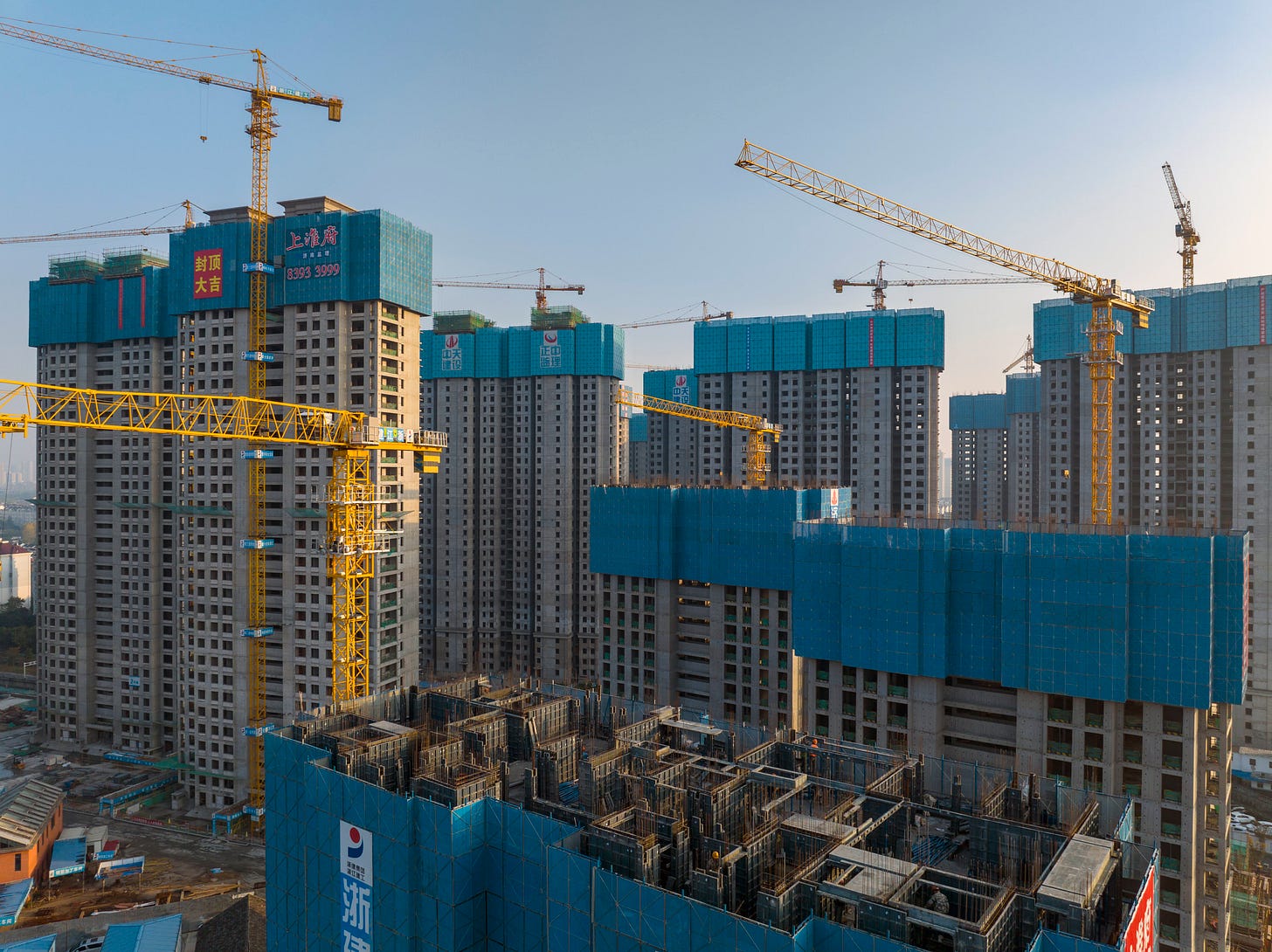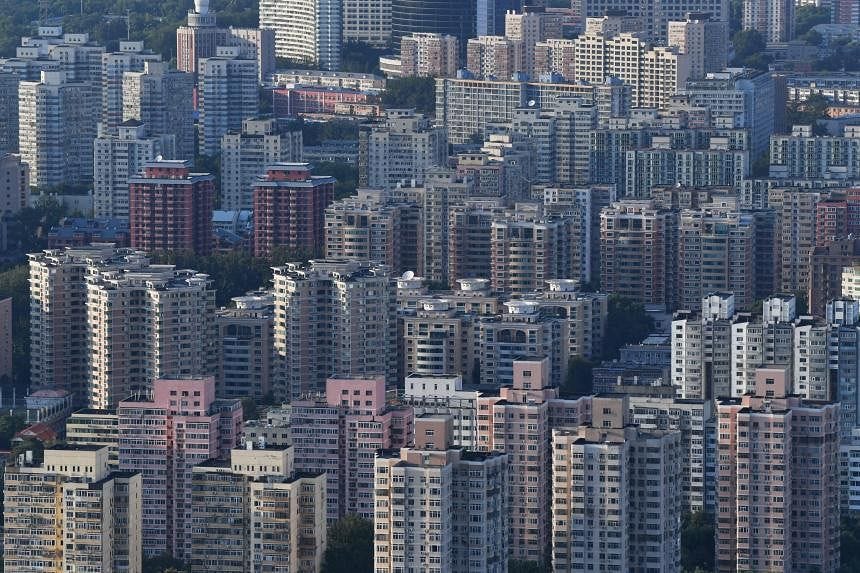New era for China's real estate industry?
While the old era of leverage-driven, fast yet risky expansion is over, the new model of development is in the making for an industry that holds a pivotal influence on the Chinese economy.
Written by Haoxin Zhu , Joan Wang
Having been beleaguered by debt pile-up, stringent regulation and a softening market, China's real estate industry seems to approach a turning point amid the latest policy easing signals.
On July 24, a meeting held by the Political Bureau of the Communist Party of China Central Committee, the CPC leadership, demanded efforts to adjust and optimize real estate policies in a timely manner to "adapt to the new situation where major changes have taken place in the supply-demand dynamics" of the market.
The political bureau meeting, usually held in July of each year, has traditionally been regarded as tone-setting for economic policies in the second half of the year. Any new wording in the meeting carries weight on the development and regulation of relative industries.
The "new situation" noted by the meeting echoed what a central bank official had proclaimed days earlier, when Zou Lan, head of the People's Bank of China monetary policy department, spoke of "significant and profound changes" in the demand-supply relationship in China's realty sector.
"There is room for marginal optimization of policies that were rolled out in the past when the market was in a prolonged overheated period," Zou said at a press conference in mid-July.
THE END OF AN OVERHEATED ERA
In earlier years, with overwhelming demand and excessive capital inflows, China's property market sizzled as developers rushed to buy land and launch projects on high leverage and relied on high turnover for profits.
But as demand subsided, many cities have seen a downturn in both housing sales and prices in the past two years. Market sentiment has weakened further since April this year, with the area of new commercial housing falling 5.3% year on year in the first half of 2023, according to data from the National Bureau of Statistics.
A shrinking population, slowing urbanization and a significant increase in the per capita housing area have jointly contributed to a retreat in the new home sales, according to Chen Wenjing, market research director of China Index Academy.
"The era of capital flowing into the real estate sector is over, so is the era of developers snapping up large chunks of land," said Li Yujia, a researcher at the Guangdong Urban & Rural Planning and Design Institute Co., Ltd.
As the property market enters a new development stage at a geared down speed, analysts believe future regulation on the sector will focus on the quality rather than the quantity of growth.
While the recurrence of runaway expansion is neither realistic nor desirable for the real estate industry, a downward spiral must be warded off as the sector is key to China's economic vitality.
Loans related to the real estate industry account for 40% of China's total bank loans, while 60% of residents' wealth and half of local government revenues are linked to the industry, according to official estimates.
As Chinese authorities strive to shore up the economy amid headwinds including a faltering global market and insufficient domestic demand, the policy toolkit is expected to be better used to spur stable and healthy development of the real estate market, just as the political bureau meeting has urged.
CLEAR SIGNALS FOR MORE EASING
The meeting sent a signal of further easing property restrictions by dropping the phrase "housing is for living, not for speculation," Ting Lu, chief China economist of Nomura, wrote in a research note.
Some existing restrictive measures in large cities are expected to be marginally eased, Lu believes.
Similar expectations have gained traction after Ni Hong, Minister of Housing and Urban-Rural Development, told a symposium last week that more measures will be taken to cement the recovery trend of the real estate market, including lower down payment ratios and mortgage rates for first-home buyers and tax breaks for those who sell their existing houses for better ones.
Most notably, as Ni indicated, the current rule that only those without mortgage records can qualify as "first-home buyers" could be scrapped in some cities.
Following the symposium, local housing regulatory departments in Beijing, Guangzhou and Shenzhen have announced that stepped-up efforts will be made to meet residents' essential housing demand and their demand for better housing, without going to the specifics.
Since the start of this year, more than 100 cities and counties across China have optimized real estate regulations in various ways to arrest local market downturn. But many large cities have yet to roll out substantial supportive measures.
The overall intensity of property easing is expected to increase in the second half of the year and there is relatively big room for first- and second-tier cities to adjust restrictive policies, according to Chen.
NEW MODEL FOR HOUSING DEVELOPMENT
Despite the encouraging policy signals, analysts caution that there is no quick fix to the property industry weakness. The market is waiting for more specific policies, while a virtuous cycle for the sector is yet to be formed.
In the pursuit of high-quality development, China is now exploring a new model of development for the industry, by means of expanding the supply of government-subsidized housing, encouraging rental housing and trying out selling completed apartments, rather than relying on pre-sale of unfinished flats, to ensure delivery quality.
China plans to make about 8.9 million units of government-subsidized rental housing available nationwide during the 14th Five-Year Plan (2021-2025) period.
The Ministry of Housing and Urban-Rural Development is exploring regular examination, maintenance and insurance systems to improve the quality of housing.
Analysts expect greater policy support for renovating old urban neighborhoods and underdeveloped areas in megacities as part of the endeavors to find a new model of development for the industry.
Looking forward, there remains abundant potential of development for China's real estate market, with the continuing urbanization process, increasing demand for better living conditions and a still resilient Chinese economy.
In the first half, the total area of new and second-hand homes sold rose 23.4% year on year, with second-hand homes taking a larger share of the transaction volume, according to data from the ministry.
Remarkable progress has been made in facilitating the delivery of pre-sold unfinished houses, strengthening the confidence of buyers.
"As the macro-economy further improves, residents become more willing to purchase and developers increase their investments, the real estate market will see more stable and sound development," according to an opinion article published on Economic Daily on July 26.








